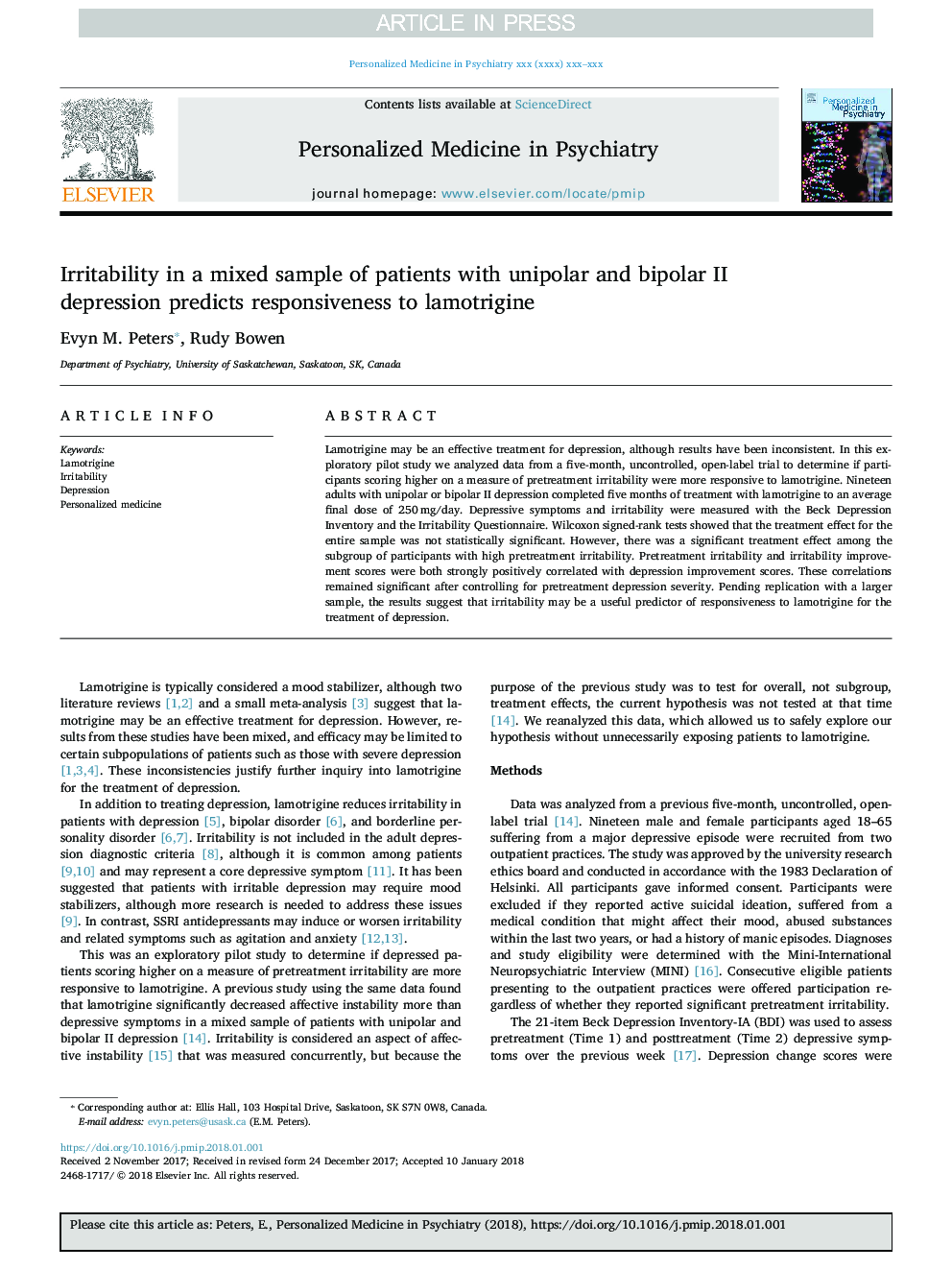| Article ID | Journal | Published Year | Pages | File Type |
|---|---|---|---|---|
| 8922919 | Personalized Medicine in Psychiatry | 2018 | 4 Pages |
Abstract
Lamotrigine may be an effective treatment for depression, although results have been inconsistent. In this exploratory pilot study we analyzed data from a five-month, uncontrolled, open-label trial to determine if participants scoring higher on a measure of pretreatment irritability were more responsive to lamotrigine. Nineteen adults with unipolar or bipolar II depression completed five months of treatment with lamotrigine to an average final dose of 250â¯mg/day. Depressive symptoms and irritability were measured with the Beck Depression Inventory and the Irritability Questionnaire. Wilcoxon signed-rank tests showed that the treatment effect for the entire sample was not statistically significant. However, there was a significant treatment effect among the subgroup of participants with high pretreatment irritability. Pretreatment irritability and irritability improvement scores were both strongly positively correlated with depression improvement scores. These correlations remained significant after controlling for pretreatment depression severity. Pending replication with a larger sample, the results suggest that irritability may be a useful predictor of responsiveness to lamotrigine for the treatment of depression.
Related Topics
Life Sciences
Biochemistry, Genetics and Molecular Biology
Genetics
Authors
Evyn M. Peters, Rudy Bowen,
